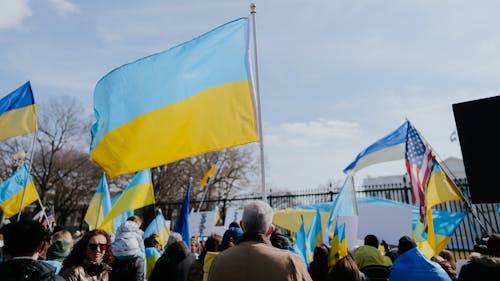Russia's invasion of Ukraine explained by Rutgers professors

On Feb. 24, Russian troops invaded Ukraine after Russian President Vladimir Putin announced a special military operation in the country, according to an article from NPR. As of last Thursday, approximately 1 million Ukrainians have fled the country as a result of the invasion.
Jan Kubik, a distinguished professor in the Department of Political Science, said the motives behind the invasion may include Putin’s desire to increase Russia’s geopolitical power.
“(Putin) made it public, for example, that he felt that the breakup of the Soviet Union in 1991 was the greatest tragedy of the 20th century,” he said.
Kubik said previous actions that indicate Putin’s goal to regroup the countries formerly part of the Soviet Union include the 2014 annexation of Crimea.
William Field, undergraduate program director and associate professor in the Department of Political Science, said Putin’s invasion of Crimea in 2014 was partly meant to reestablish his popularity in Russia.
He said a drop in oil prices during the early 2010s hurt the Russian economy, and Putin sought to use Crimea’s annexation as well as the invasion of eastern portions of Ukraine to boost his support amongst the Russian populace.
Recently, the Russian economy has also been undergoing difficulties, and per capita income in the country has decreased, Field said. The recent invasion of Ukraine could be another attempt by Putin to hold onto power, he said.
R. Daniel Kelemen, a professor in and chair of the Department of Political Science, said that the Putin regime has been trying to exact control over Ukrainian governments for the past 20 years, and the invasion may be a reaction to the country’s ties with Western nations.
Since the invasion of Crimea, Russia’s ability to control Ukraine through methods like interfering with elections has decreased significantly, he said.
Simultaneously, Kelemen said Ukraine has expressed a more supportive stance toward the U.S., NATO and the European Union.
He also said the westernization of Ukraine both threatens Putin's plan to consolidate bordering countries under Russia and his power over the Russian people.
“(Putin does not) want to see a successful democracy next door to them,” Keleman said. “This invasion is about taking over Ukraine and subjugating it to the will of his regime.”
Though, James Doran, an instructor in the Center for Critical Intelligence Studies, said that he disagrees with the idea that Putin is aiming to reassemble the Soviet Union.
Instead, he said he believes that Putin is trying to recreate the Russian Empire, which included countries such as Belarus, Poland and Ukraine, and wants to establish the country as a world superpower.
“A part of the social contract that keeps Putin in power is that he cannot give (Russians) everything they want in terms of material benefits, but he's promised to make Russia great again,” Doran said. "He's promised to restore it to its, as he sees, natural place in the world as a big actor on the world stage and a superpower."
Kelemen said that while he cannot completely predict the future, he thinks this invasion will not go in Putin’s favor.
“(Putin) has alienated Ukrainians so much and instilled such a strong sense of patriotism and resistance that I don't see how he can effectively maintain control and govern a country of 40 million people,” he said.
Kubik said that throughout the invasion, Ukrainians have maintained a strong sense of national identity, and the unity they have formed during the crisis may result in a strong return of a Ukrainian nation.
“Ukrainians show they are way more determined and organized and ready to fight ... They're not going to give up, particularly now that people died," he said. "That would be like a betrayal of those who already sacrificed their lives."
Kubik said those who can help, including Rutgers students, should find trustworthy organizations to donate to Ukrainian refugees and the country’s armed forces. He also said the University should address the invasion as it unfolds by teaching about it in classes and hosting discussion events.
Field said he believes that Rutgers students should understand the high stakes of the crisis and steer clear of misinformation.
“We are in a fight with the ideals of the Enlightenment," he said. "The Enlightenment is a world where the rule of law trumps the rule of individual people. Despots like (Putin) ... want their personal preferences to be the law at any one moment."



